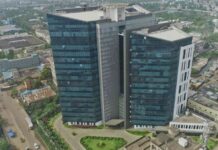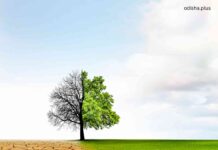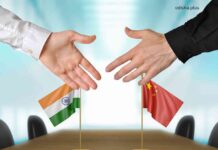World Bicycle Day is not just about bikes, it’s about health, fairness, and action
Akhil Kumar Mishra

In April 2018, the United Nations named June 3 as World Bicycle Day. This day honours the bicycle. It’s been used for over 200 years. It’s simple, low-cost, and built to last. It also helps protect the planet. The UN called the bicycle a clean and healthy way to travel. Bikes work for people of all ages. They support a safer and fairer world.
World Bicycle Day is for everyone. It doesn’t matter where you’re from, how old you are, or how much money you have. If you can ride a bike, you can take part.
Bikes bring people together. They help build trust and respect. Riding in groups or with family supports friendship, peace, and joy. The bike is also a sign of human progress. It shows what simple tools can do. It helps people feel free and included.
Need for Bicycle
Biking is a great way to stay active. You don’t need a gym or fancy gear. Just have/rent a bike and a safe place to ride.
Riding helps our heart and lungs. It builds strong muscles. It can lower the chance of getting diseases like cancer, stroke, or diabetes. Doctors now link cycling with better health for people with both Type 1 and Type 2 diabetes. It helps with blood sugar and weight control.
Even short rides help. Just a little bit of movement each day is better than sitting still. Kids, adults, and older people can all benefit from biking.
Many people can’t afford a car. They rely on walking or biking to get around. A safe bike path may be the only way for some to get to work, school, or a health clinic.
The World Health Organization says that better streets for walking and biking help with health and fairness. This is called health equity. It means giving everyone a fair shot at being healthy, no matter where they live or how much they earn.
Bikes help people in poor or crowded areas get where they need to go. They can reduce the risk of illness and improve quality of life. Building better paths helps save lives and money.
Social Benefits
Biking is good for cities too. Bikes take up less space than cars. They don’t pollute the air. They don’t use gas or diesel. They’re quiet and safe. Cities with more bikes have less traffic. That means fewer crashes and cleaner air. It also means people get places faster and feel less stress.
The COVID-19 pandemic helped push cities to think differently. Many added bike lanes to keep people moving safely. More people started riding. They saw how easy and useful bikes could be.
Bikes are a key part of the solution to climate change. Most cars run on fossil fuels. They pump harmful gases into the air. Bikes don’t. If more people walk or bike instead of drive, we can cut down on greenhouse gases. We can also use less oil and save money.
In 2022, the UN passed another resolution. It called for more cities to add biking into public transit systems. It said that bikes help people live better and support clean growth.
The United Nations has big goals for the planet. They’re called Sustainable Development Goals—or SDGs. These goals cover health, climate, education, fairness, and more. Biking helps meet 13 of these goals. It supports clean energy, strong cities, and better health. It also makes schools, hospitals, and jobs easier to reach.
Everyone can take part in bike riding and help in maintaining safer roads. We should join group rides in towns and support bike programs at schools. Teach kids to enjoy biking early. They’ll build good habits for life. Older adults can use bikes too at their own pace and in their own way.
Conclusion
The bicycle is simple, but powerful. It helps people live longer, breathe cleaner air, and feel freer.
World Bicycle Day is not just about bikes. It’s about health, fairness, and action.
It’s a chance to show that small changes—like riding instead of driving—can help the whole planet. So, on June 3, let’s take a ride. Help make our towns safer, cleaner, and more connected.
(The author is a 1999 batch Indian Information Service officer presently serving as the Additional DG, Press Information Bureau (PIB), Government of India, posted at Bhubaneswar. Views expressed are personal.)



























